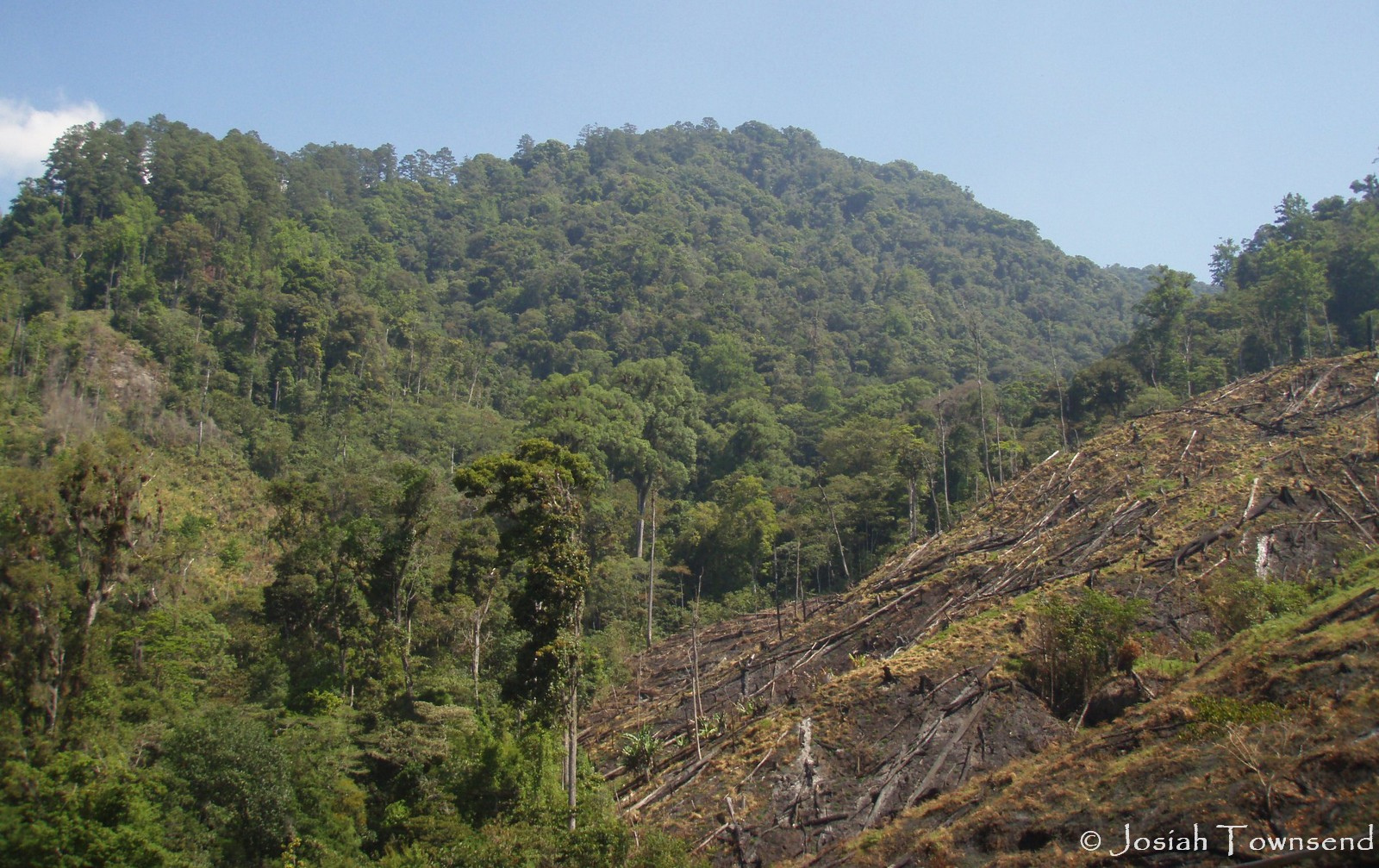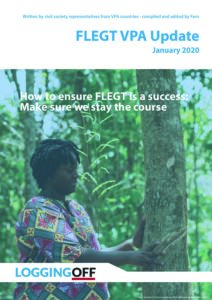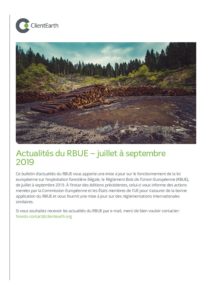Honduras
Photo: Joe Townsend, Flickr/cc.
Les négociations avec le Honduras ont débuté en janvier 2013 et l’APV a été signé le 14 juin 2018. L’APV hondurien semble avoir déclenché une lame de fond nationale. En réduisant le pouvoir de la bureaucratie, les Honduriens travaillant à la mise en œuvre de l’APV envoient un signal fort aux autres secteurs. En termes de transparence et de méthodes de consultation, le secteur forestier est de loin le secteur industriel le plus avancé du Honduras.
Le Honduras compte environ 6,6 millions d’hectares de forêt, couvrant près de 60% de la superficie totale du pays. Les forêts sont très importantes pour l’économie hondurienne, car elles procurent des emplois et constituent un moyen de subsistance pour le peuple local. Toutefois, entre 1990 et 2010, près de trois millions d’hectares de forêts ont été détruits.
Moins de 2% du bois hondurien est exporté vers l’UE et, pourtant, le Honduras a choisi de négocier un APV. En effet, l’APV est considéré comme un moyen d’améliorer la mise en application de la loi, la transparence et la gouvernance forestière globale. En entrant dans le processus de l’APV, le pays espère permettre à ses produits du bois de répondre aux exigences en matière de diligence de la législation américaine qui interdit toute importation de bois d’origine illégale.

Dernière mise à jour de l'APV :
L’APV entre le Honduras et l’UE a été conclu il y a un an, suscitant un grand enthousiasme. Depuis, les travaux en vue de la ratification et de la mise en œuvre finales ont commencé afin d’apporter les nombreuses précisions nécessaires avec l’aide d’une multitude d’acteurs. Les résultats n’ont toutefois pas été aussi spectaculaires, ni même visibles. L’harmonisation des objectifs et la création des structures de l’APV, souvent à partir de rien, sont des tâches complexes. Bien que les acteurs concernés restent enthousiastes et engagés, leur motivation est actuellement mise à mal par la lenteur des progrès et les nombreuses années de négociation.
Dans le dernier numéro de l’actualité des APV, le pouvoir exécutif hondurien s’employait à définir les domaines où les cadres réglementaires du Honduras et de l’APV devaient être ajustés, avant de soumettre ses propositions au Congrès pour examen. Lors de sa deuxième réunion, en mars 2019, le premier Comité conjoint de mise en œuvre (pre-CCA, pre-Comité Conjunto de Aplicación), composé de représentants honduriens et européens, a accepté d’accélérer le processus et de signer l’APV dans les prochains mois. L’effervescence autour de l’APV est palpable : l’APV reste au premier plan des considérations politiques et il est souvent mentionné dans les discussions plus générales.
La préparation de la mise en œuvre du système de vérification de la légalité du bois (SVLB) se poursuit. Elle implique non seulement de définir des critères et des procédures, mais aussi, parfois, de créer les institutions et les structures responsables, de designer les acteurs chargés du travail et de déterminer le financement dont ils auront besoin et les tâches qu’ils devront réaliser. Une fois de plus, à mesure que les détails se multiplient, une certaine lassitude s’installe.
Les progrès sont toutefois tangibles : le plan quinquennal esquissant les grandes priorités de l’APV a été achevé. Le Comité Técnico, un groupe multipartite qui se distingue pour sa remarquable coopération, a mis au point une feuille de route, approuvée lors de la réunion de mars du pre-CCA.
La création d’un secrétariat technique désigné pour coordonner la mise en œuvre de l’AVP constitue une autre belle avancée. Au lieu d’augmenter la charge de travail des autres administrateurs en y ajoutant les tâches en lien avec l’APV, le gouvernement a consacré des ressources spécifiques au Secretaría Técnica del AVA (SETAVA), une nouvelle entité qui se consacre exclusivement à soutenir et coordonner les divers acteurs dans la mise en œuvre de l’APV.
Jusqu’à récemment, le SETAVA assurait sa mise en place. Il travaille désormais avec l’aide d’un consultant financé par l’UE, afin de préparer un projet de stratégie de communication pour le CCMO. Une première version solide a été rédigée et doit à présent être examinée et approuvée par les parties. Grâce à cette stratégie, le SETAVA pourra aider d’autres institutions publiques participant à la mise en œuvre de l’APV à se familiariser avec le sujet. Ces institutions joueront un rôle de premier plan dans le respect des dispositions de l’APV tant à Tegucigalpa, que dans les campagnes honduriennes et les municipalités reculées. Elles y instaureront également une culture de la légalité, qui influencera la manière dont l’APV sera appliqué. À l’heure actuelle, plusieurs municipalités craignent de voir leur pouvoir diminuer et se montrent dès lors suspicieuses à l’égard de l’APV et de ses obligations. Les différents intervenants attendent donc avec impatience d’en découvrir le fonctionnement.
La clarification du régime foncier, présentant des situations conflictuelles et déroutantes, constitue l’une des tâches de la feuille de route les plus essentielles et les plus complexes. Bien qu’il s’avère extrêmement difficile de déterminer la propriété, le plan pluriannuel a pour objectif de régulariser 100 000 hectares de terres traditionnelles au cours des deux prochaines années. Cette année, l’Institut de conservation des forêts (ICF) a déjà régularisé 11 000 hectares.
La situation du régime foncier permet en partie d’expliquer pourquoi la motivation s’amenuise : même les bonnes nouvelles ne sont pas communiquées. En effet, le site web de l’ICF est inaccessible depuis longtemps, ce qui signifie que la régularisation des 11 000 hectares n’a pu être découverte que grâce à des informations internes, à l’issue de longues recherches. La principale difficulté réside dans la création d’une nouvelle culture de la transparence, jusque là inexistante. La non-publication de certaines informations n’est pas forcément due à des réticences bureaucratiques, mais au fait que personne n’a le réflexe de les communiquer ou que les données pertinentes n’existent pas. Les informations utiles pour compiler les registres de propriété, par exemple, n’ont jamais été passées au crible ou n’ont jamais été mises par écrit, et la collecte de ces données de base représente une tâche colossale.
Enfin, la participation et la coopération entre les parties prenantes comptent parmi les belles réussites du processus de l’APV. L’ICF continue d’échanger avec les OSC, qui ont souvent accès à des informations plus précises que les institutions gouvernementales. Au vu des expériences positives quant à la participation des parties prenantes à l’APV, certains se demandent pourquoi ce type de consultations n’existe pas encore dans d’autres secteurs. Les peuples autochtones avaient déjà exprimé leur mécontentement vis-à-vis des processus qui les traitent comme un bloc homogène. Après la signature de l’APV, outre l’organisation centrale, la CONPAH (Confederación de los Pueblos Autóctonos de Honduras), qui a assisté au deuxième cycle des négociations, d’autres organisations de peuples autochtones, comme la Mesa de Unidad del Pueblo Lenca in Honduras (MUPILH), ont participé au processus de l’APV.
Les travaux se poursuivent sans relâche sur de nombreux fronts. Il serait utile de remonter le moral des intervenants en communiquant mieux sur les progrès réalisés, même minimes, à mesure que la pression monte pour atteindre des résultats et aboutir à une ratification et à un régime d’octroi de licences FLEGT. Les OSC sont toutefois convaincues que l’enthousiasme reviendra, plus fort encore, au fil des succès.
Dernière mise à jour datant de juillet 2019.
Partager cette page sur les réseaux sociaux:





